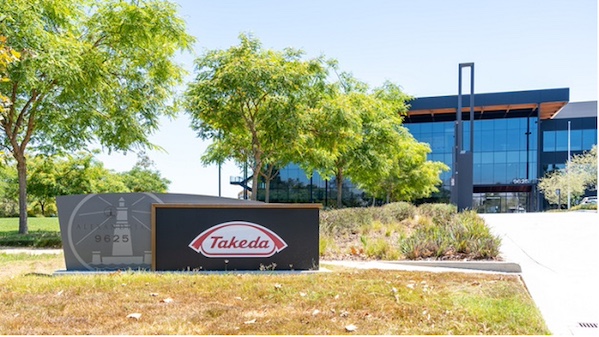Takeda Wins FDA Approval for Fruquintinib in Certain Colorectal Cancer Patients
November 13, 2023
Source: drugdu
 314
314

The FDA on Wednesday approved Takeda’s fruquintinib for previously treated adults patients with metastatic colorectal cancer. The oral targeted therapy of the VEGF-1, -2 and -3 receptors will carry the brand name Fruzaqla.
Fruzaqla’s label covers patients who had received prior lines of treatment with fluoropyrimidine, oxaliplatin and irinotecan chemotherapy, as well as an anti-VEGF agent. In wild-type RAS metastatic colorectal cancer (mCRC), and if medically appropriate, the therapy is also indicated for patients who had previously received anti-EGFR treatment.
Wednesday’s approval comes more than 20 days before its scheduled target action date and makes Fruzaqla the “first and only selective inhibitor of all three VEGF receptor kinases approved in the U.S. for previously treated mCRC regardless of biomarker status,” according to Takeda’s announcement.
“Fruzaqla is the first novel chemotherapy-free treatment option approved for patients in the U.S. regardless of biomarker status in more than a decade,” Teresa Bitetti, president of Takeda’s Global Oncology Business Unit, said in a statement. “Fruzaqla has the potential to offer a significant survival benefit to patients without negatively impacting their quality of life.”
An oral inhibitor of the VEGF-1, -2 and -3 receptors, which together play a crucial role in the formation of the blood vessels that sustain tumors, Fruzaqla has strong selectivity allowing for higher doses while minimizing off-target effects for sustained inhibition of its targets.
The FDA’s approval was based on data from the Phase III FRESCO-2 and FRESCO studies. FRESCO-2, a multi-regional, randomized, double-blinded and placebo-controlled study, showed a significantly better survival rate in Fruzaqla-treated patients. FRESCO, a similar study that was conducted in China, likewise demonstrated superior overall and progression-free survival following Fruzaqla treatment.
Fruzaqla does not come with a boxed warning but bears precautions against hypertension, infections, hepatotoxicity and hemorrhagic events, among other potential side effects.
Wednesday’s regulatory win ends a losing streak for Takeda, which in recent months has suffered both clinical and courtroom defeats.
In September 2023, Takeda lost its patent case with Roche when a U.S. appellate court ruled that Genentech’s hemophilia A therapy Hemlibra (emicizumab) did not infringe on protections held by Takeda subsidiary Baxalta.
Last month, the company was forced to withdraw its lung cancer therapy Exkivity (mobocertinib) from U.S. and global markets after a Phase III confirmatory trial missed its primary endpoint.
In addition, in its recent third-quarter earnings report, Takeda took a write-down of more than $770 million and lowered its guidance for fiscal year 2023 by 71%.
Read more on
- The first subject has been dosed in the Phase I clinical trial of Yuandong Bio’s EP-0210 monoclonal antibody injection. February 10, 2026
- Clinical trial of recombinant herpes zoster ZFA01 adjuvant vaccine (CHO cells) approved February 10, 2026
- Heyu Pharmaceuticals’ FGFR4 inhibitor ipagoglottinib has received Fast Track designation from the FDA for the treatment of advanced HCC patients with FGF19 overexpression who have been treated with ICIs and mTKIs. February 10, 2026
- Sanofi’s “Rilzabrutinib” has been recognized as a Breakthrough Therapy in the United States and an Orphan Drug in Japan, and has applied for marketing approval in China. February 10, 2026
- Domestically developed blockbuster ADC approved for new indication February 10, 2026
your submission has already been received.
OK
Subscribe
Please enter a valid Email address!
Submit
The most relevant industry news & insight will be sent to you every two weeks.



